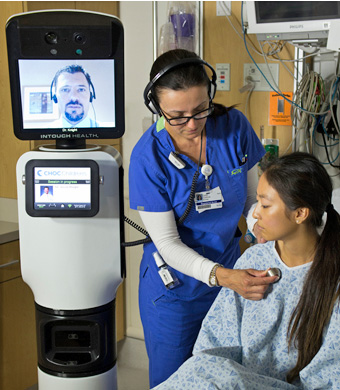By: Amanda Ziminski
So you want to be a doctor? Pursuing a medical degree can be quite intimidating. Everyone knows how rigorous, and
stressful the journey to becoming a physician is. When you tell people you are a premedical student, they kind of just give you a look that says "good luck kid." Then you get into your science classes and they are suddenly a lot harder than high school, and require much more effort than your friend who is pursuing a degree in art education. You're summers aren't a time of vacationing and relaxation, but a time for research, internships, job shadowing and volunteering. You must remain a competitive candidate for medical school.
All of this is obviously extremely overwhelming, so where do you start? A good place to start is by making sure that you are dedicated and being a physician is really what you want to do. Many people begin their college careers pursuing a premedical track and end change their minds. This produces a lot of wasted time, money, and stress. I would recommend job shadowing with local physicians and asking them questions about their journey to becoming a doctor. They can give you good advice and provide insight into their daily lives as a physicians. This process can either reinforce your ambitions, like it did for me, or will allow you to see this is not what I want to do with my life, like it did for my friend. It is also important to decide if being a doctor aligns with your lifestyle you desire. Being a doctor requires putting off having a family and settling down, as you are in school for an additional 4 years and have to complete a residency and fellowships. It induces a much more stress than most occupations because if you screw up, people die. It also requires a lifetime of continuing education.
There is also a lot of resources that can help you decide if you want to be a doctor and pursue the premedical track.
Your academic advisor can help you determine whether or not you would be a competitive candidate for medical school, along with the requirements to get into medical school.
The Association of American Medical Colleges (AAMC) has a lot of resources for any questions you may have about medical school and residency. The following is a link of videos of actual medical students answering questions about medical school from the AAMC.
https://students-residents.aamc.org/choosing-medical-career/medical-school-101/what-medical-school-really/ask-med-student-video-series/
The American Medical Association is also full of great information.
https://www.ama-assn.org/
It is important to not wait. Take advantage of every opportunity you have to delve into the medical world. You will either fall in love with it or learn to hate it, and the quicker you learn which side of the spectrum you fall into, the better.


Image Credit:
https://premedroad.files.wordpress.com/2013/04/20130425-164301.jpg
http://s3-ak.buzzfeed.com/static/2014-04/enhanced/webdr06/26/4/enhanced-buzz-26093-1398502441-4.jpg







.jpg)

